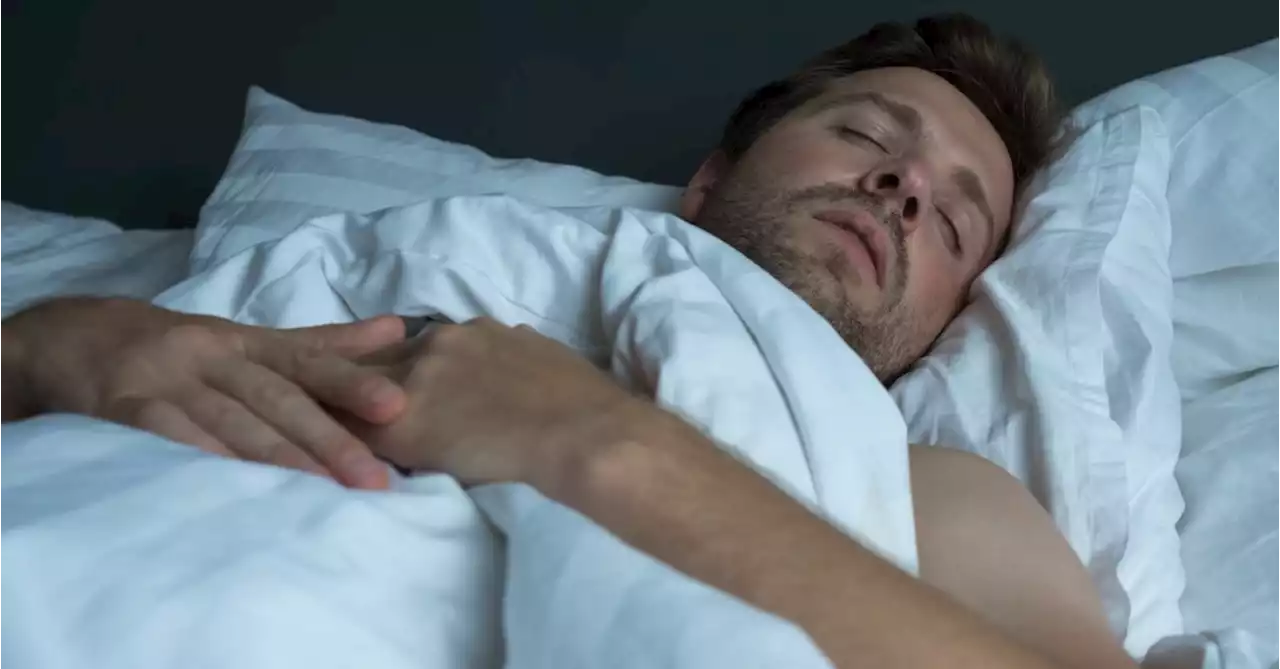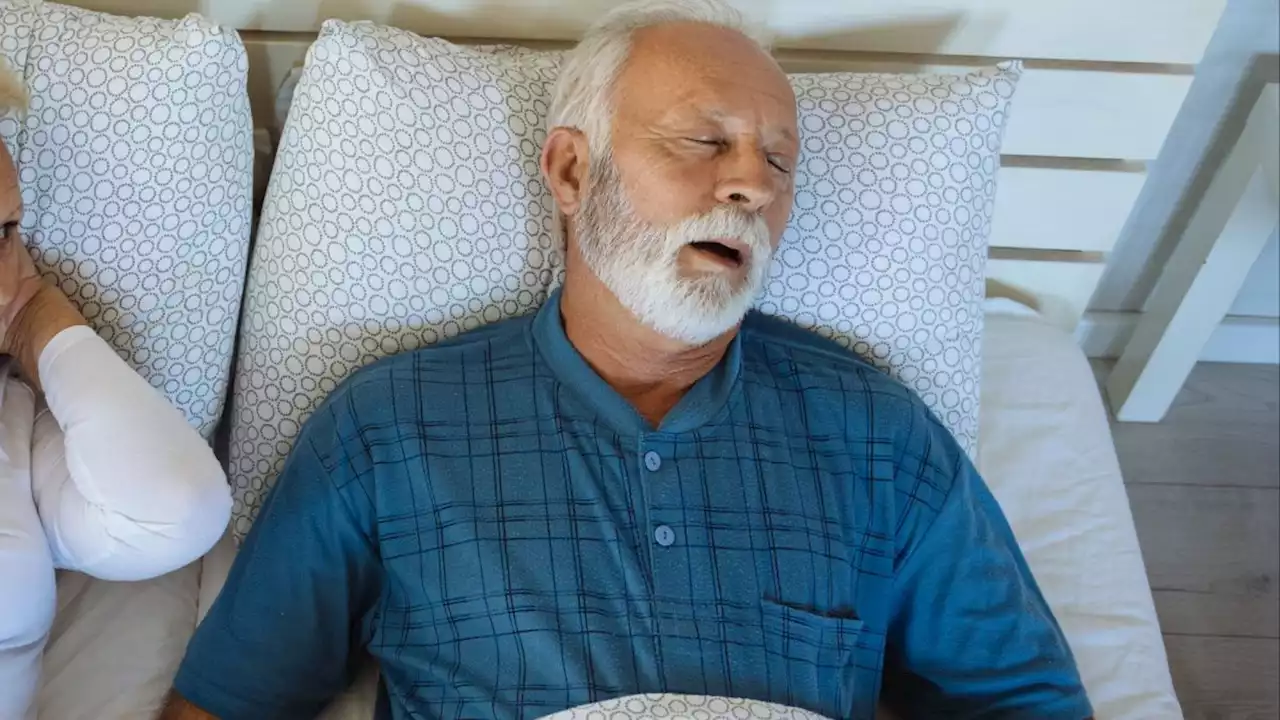Sleep apnea and a lack of deep sleep may be linked to abnormalities in the brain's white matter.
The study, published Wednesday in the journal Neurology , looked at people with obstructive sleep apnea , a condition where the upper throat muscles relax during sleep and block the airway. The researchers used magnetic resonance imaging and sleep studies to examine if sleep apnea and altered sleep were associated with two kinds of unusual patterns in the brain's white matter — the insulated wires that extend from brain cells.
The researchers found"a pretty significant association between slow-wave sleep duration, or deep sleep time, and these white matter measures," said Bryce Mander , an assistant professor of psychiatry and human behavior at the University of California, Irvine, who was not involved in the study.The study included 140 people with OSA whose average age was about 73 years old.
The second biomarker, called"fractional anisotropy of the genu of the corpus callosum," is related to how water flows through brain cells' wires, or axons. Changes in this water flow, wrote Carvalho, are related to axon damage and can be an early sign of vascular disease. The corpus callosum is a bundle of nerve fibers that connect the two hemispheres of the brain and contains the organ's densest white matter.
The research reveals associations between sleep apnea, deep sleep, and white matter abnormalities, but it can't say whether these sleep differences caused the abnormalities, or if differences in white matter could be interfering with sleep. It also could be that sleep and white matter abnormalities impact one another, said Mander, contributing to a vicious cycle of poor sleep quality and worse brain health.
United States Latest News, United States Headlines
Similar News:You can also read news stories similar to this one that we have collected from other news sources.
 Can Dogs Have Sleep Disorders?Did you know dogs can have sleep apnea and even narcolepsy? StanleyCoren explains.
Can Dogs Have Sleep Disorders?Did you know dogs can have sleep apnea and even narcolepsy? StanleyCoren explains.
Read more »
 How I Cope With Sleep Apnea and DepressionBrian was diagnosed with sleep apnea over 5 years, and initially he thought his life was over. But now, he's sharing how he managed his depression after his diagnosis.
How I Cope With Sleep Apnea and DepressionBrian was diagnosed with sleep apnea over 5 years, and initially he thought his life was over. But now, he's sharing how he managed his depression after his diagnosis.
Read more »
 Stephen King Adaptation From Doctor Sleep Director Adds Major MCU & Star Wars ActorsA new Stephen King adaptation from Doctor Sleep director Mike Flanagan gets a thrilling update as it casts two major MCU and Star Wars actors.
Stephen King Adaptation From Doctor Sleep Director Adds Major MCU & Star Wars ActorsA new Stephen King adaptation from Doctor Sleep director Mike Flanagan gets a thrilling update as it casts two major MCU and Star Wars actors.
Read more »
Jimbo Fisher says don't sleep on Texas A&M this seasonAfter a 5-7 season that made him 'grumpier,' Texas A&M coach said he's sleeping well...
Read more »
 Plea agreement rejected for Pa. woman who thought dead friend was in ‘a deep sleep’The need for more treatment than Amber Burkhart would get on probation was cited as a reason.
Plea agreement rejected for Pa. woman who thought dead friend was in ‘a deep sleep’The need for more treatment than Amber Burkhart would get on probation was cited as a reason.
Read more »
 Short Night-Time Sleep Linked With 74% Increased Risk of Peripheral Artery DiseaseAccording to a study recently published in the European Heart Journal – Open, an academic journal of the European Society of Cardiology, individuals who sleep less than five hours per night have a 74% higher chance of developing peripheral artery disease (PAD) in comparison to those who get seven to
Short Night-Time Sleep Linked With 74% Increased Risk of Peripheral Artery DiseaseAccording to a study recently published in the European Heart Journal – Open, an academic journal of the European Society of Cardiology, individuals who sleep less than five hours per night have a 74% higher chance of developing peripheral artery disease (PAD) in comparison to those who get seven to
Read more »
